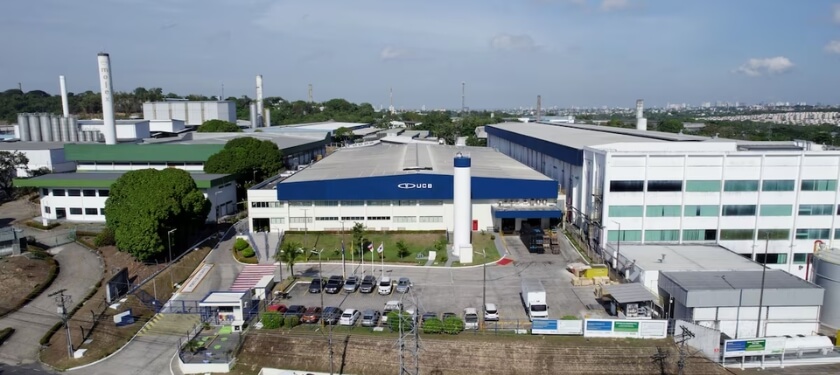Energy transition may boost UCB’s future IPO
Brazilian battery industry aims to increase Ebitda by 38.5% this year

The demand for battery energy storage systems in Brazil is expected to boost UCB (formerly Unicoba) results this year and pave the way for the company’s initial public offering (IPO) on the Stock Exchange, with expectations of raising over R$ 1 billion.
After an unsuccessful IPO attempt in 2021, and with the investment fund Spectra becoming one of its major shareholders, the company aims for a 38.5% increase in earnings before interest, taxes, depreciation, and amortization (Ebitda) this year, compared to the R$ 130 million earned last year, reaching R$ 180 million. This increase is seen as an important step in preparing for the IPO, planned for the next capital market window.
According to the company’s CEO, George Fernandes, the goal is ambitious but entirely achievable, as the company has been growing by an average of 25% annually over the past five years. Furthermore, the electrical sector’s evolution, with the increased share of intermittent sources such as wind and solar photovoltaic, highlights the importance of storage systems.
Standalone systems are markets with strong growth
An example cited by the executive is the operation in isolated systems of the National Interconnected System (SIN), in which local distributors have been implementing solutions involving the installation of photovoltaic panels for local generation and battery banks to ensure supply during the night. “This line associated with isolated systems is already growing by 280% per year,” he commented.
Fernandes also mentioned that the company sees significant potential for expansion in supplying batteries for both large renewable energy projects, following a trend already happening abroad, and for projects aimed at energy security, associated with transmission networks, for example.
To give an idea of the potential of this market, a recent survey by the consultancy Clean Energy Latin America (Cela) indicates that, with the adoption of incentives for batteries, the country has the potential to adopt 12.8 gigawatts (GW) in storage capacity by 2040, not considering private projects in industries, businesses, rural properties, and homes.
Lithium equipment prices tend to fall
Currently, in Brazil, energy production and consumption occur almost simultaneously in a complex operation coordinated by the National Electric System Operator (ONS). However, the gradual increase in the participation of wind and solar power in the SIN, with the characteristic intermittency of these sources – which have production concentrated at certain hours of the day – and their dependence on weather conditions, means that the adoption of these systems is becoming increasingly relevant. “The energy transition is going to make a difference. We’re going to ride the energy transition wave and then move on to mobility.”
One of the main obstacles to the large-scale adoption of batteries is the price of lithium equipment, which is most suitable for use in the electric sector. However, according to George Fernandes, the current scenario is that the cost of storage is falling while the relevance of these systems is increasing, creating a favorable scenario for batteries. “The price of lithium is dropping, cell prices are dropping, so I think it will continue to fall over time,” he argues.
Company negotiates with electric vehicle industries
In a rapidly expanding sector in the country, the electric mobility segment could be another business front boosting the company’s results, the executive predicts. Recent data from the Brazilian Electric Vehicle Association (ABVE) show that in 2023, 93,927 light electric vehicles were registered, an increase of 91% on an annual comparison basis.
For UCB, the advancement of this industry opens a new front of operation, and the company is looking at electric vehicle manufacturers setting up in the country and is already negotiating the supply of equipment for this market. “We are in advanced talks to make lithium batteries for them,” he comments.
This text was published in Estadão on 02/28/24, at 21:59
Link da Noticia
Share